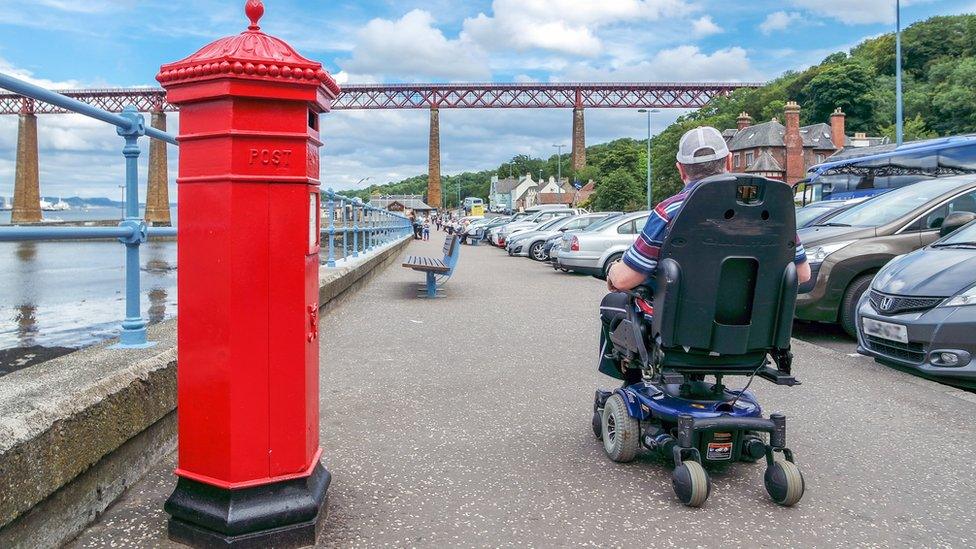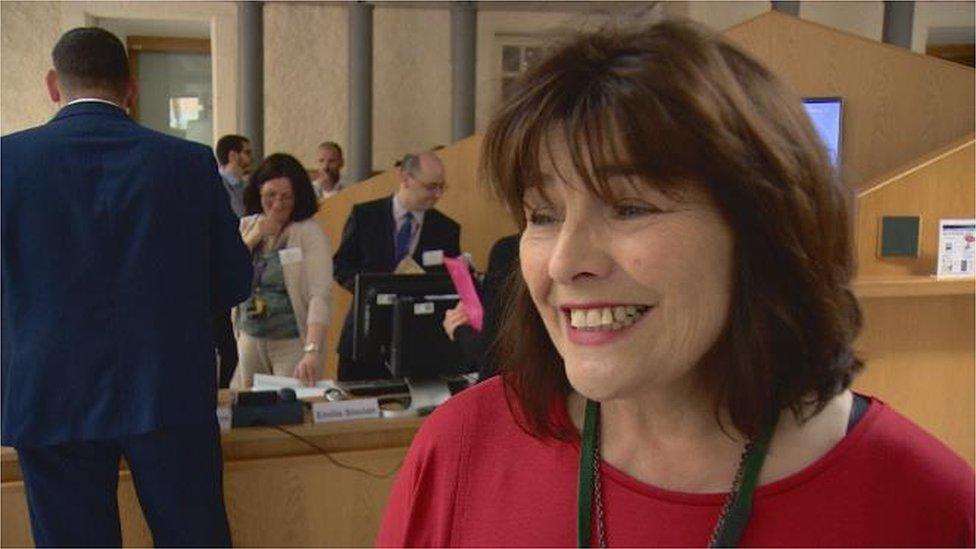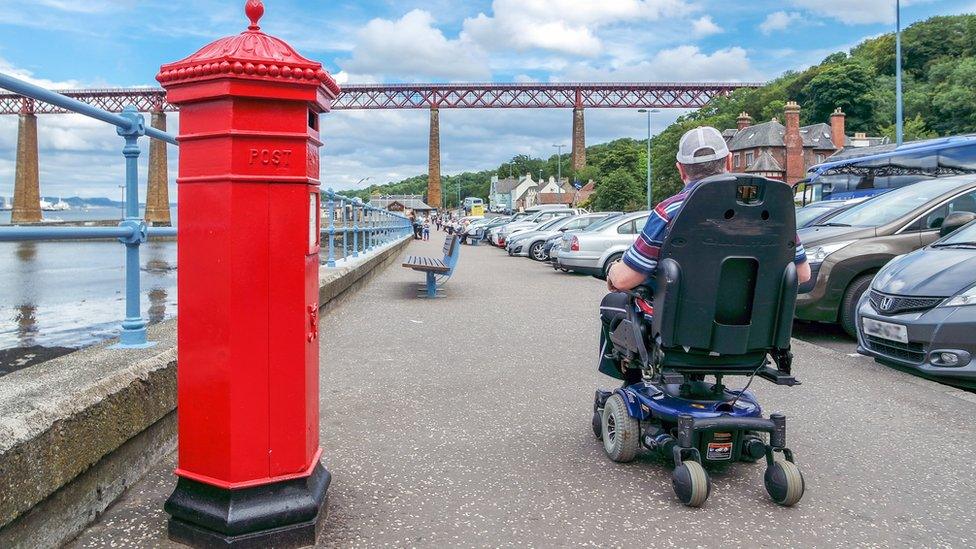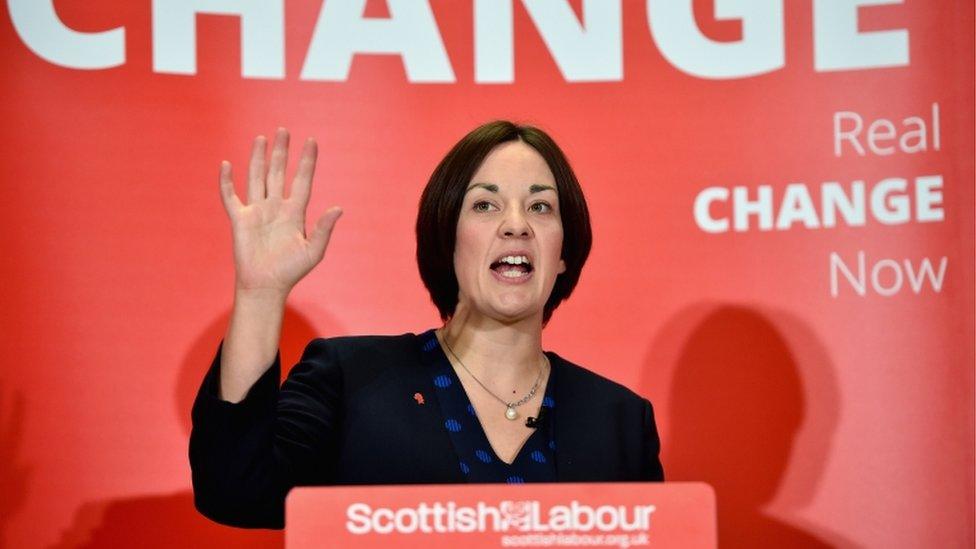Ministers could scrap word 'benefits' in welfare reform
- Published

The Scotland Bill is to give Holyrood control over benefits for people with disabilities
Holyrood ministers are considering scrapping the use of the word "benefits" when they take charge of parts of the social security system.
Responsibility for ill health and disability benefits is being devolved to Holyrood.
Social Security Minister Jeane Freeman believes there is "value in looking at at whether we continue to use the word 'benefits'" when that happens.
A consultation on how devolved benefits should be delivered, external has been launched.
Ms Freeman, who was elected to Holyrood in May, made the comments as she launched the 13 week consultation with Social Security Secretary Angela Constance.
The Scottish government has already made clear its ambition to place "dignity, fairness and respect" at the heart of the new welfare system.
'Cultural change'
Ms Freeman said: "I do think there is value in looking at whether or not we continue to use the word 'benefit', because there is an implication in there that is the rest of us doing something nice for somebody else, when actually what we have said consistently as a government is that social security is an investment we make collectively in ourselves.
"Part of how you make dignity, fairness and respect real as opposed to just fine words is about the culture that the organisation that will deliver those benefits embraces, and how people receive that in their dealings with that organisation.
"There are some things you can do to affect quite quick cultural change, and part of that is around language and thinking, so there is value in looking at whether or not we don't simply call these payments, as opposed to benefits, or some other word."

Jeane Freeman wants to consider whether the word 'benefit' should be used as part of the new welfare system
A social security bill is expected to be introduced to Holyrood in May or June next year, while the proposed new Scottish social security agency could be making payments to people before the 2021 elections.
Payments such as disability living allowance, personal independence payments, attendance allowance, severe disablement allowance and industrial injuries disabled benefit will become the responsibility of MSPs, as well as carer's allowance - which the Scottish government has already committed to increasing to the same level as jobseeker's allowance.
Other benefits being devolved include sure start maternity grants - which are to be changed to best start grants - funeral payments, cold weather and winter fuel payments, discretionary housing payments and some powers over Universal Credit.
Westminster will retain responsibility for much of the Universal Credit system, along with pensions, child benefit and maternity and paternity pay.
'Huge opportunity'
Ms Constance described Holyrood taking responsibility for part of the existing welfare system as "the biggest and most complex programme of change, probably in the history of devolution".
She added: "We want to gather views from as many people as possible from across Scotland about their own experience of benefits and how they think the system could be improved in the future."
Scottish Labour social security spokesman Mark Griffin said: "The new powers coming to our Scottish Parliament give us the opportunity to build a Scottish welfare state with dignity at its heart.
"We can do things differently now. With the power to top up and create new benefits, there is a huge opportunity to tackle poverty and inequality in Scotland.
"Labour will support the government where they show ambition in social security but we will not allow the SNP to simply pass on Tory cuts."
- Published1 March 2016

- Published29 February 2016
